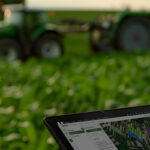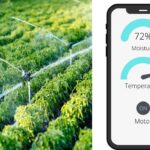Agronomy, the science of soil management and crop production, is a cornerstone of modern agriculture. It encompasses a wide range of practices and principles aimed at improving the productivity, sustainability, and profitability of farming systems. However, agronomy does not operate in isolation; it intersects with several other scientific disciplines, creating a holistic approach to agricultural science.
The Role of Agronomy
Agronomy focuses on optimizing crop production through the management of soil, water, nutrients, and other factors. It involves a deep understanding of crop genetics, physiology, and environmental interactions. Agronomists work to develop sustainable practices that enhance soil health, improve crop yields, and ensure food security.
Agronomy and Soil Science
Soil science is fundamental to agronomy. Understanding soil properties, such as texture, structure, and nutrient content, is essential for effective crop management. Agronomists use soil science to determine the best practices for soil conservation, fertilization, and irrigation. Techniques like soil testing and analysis help in making informed decisions about crop rotation, cover cropping, and soil amendments.
Agronomy and Plant Science
Plant science, or botany, is closely related to agronomy. Knowledge of plant physiology, growth patterns, and genetic traits allows agronomists to breed and select crop varieties that are resilient, high-yielding, and adapted to specific environments. Advances in plant science, such as genetic engineering and biotechnology, are leveraged in agronomy to enhance crop performance and resistance to pests and diseases.
Agronomy and Environmental Science
Environmental science plays a critical role in agronomy by addressing the impacts of agricultural practices on ecosystems. Agronomists work to develop methods that minimize negative environmental effects, such as soil erosion, water contamination, and loss of biodiversity. Sustainable farming practices, including integrated pest management and organic farming, are informed by environmental science to protect natural resources and promote ecological balance.
Integrating Agronomy with Technology
Technological advancements have revolutionized agronomy. Precision agriculture tools, such as GPS-guided equipment, drones, and remote sensing, enable agronomists to monitor and manage crops with high precision. Data analytics and machine learning provide insights into crop performance and help optimize resource use. The integration of agronomy with technology enhances efficiency, reduces costs, and supports sustainable farming practices.
Conclusion
Agronomy is a multidisciplinary science that benefits from its close relationship with soil science, plant science, environmental science, and technology. By integrating knowledge from these fields, agronomists can develop innovative solutions to the challenges facing modern agriculture. This collaborative approach ensures that farming practices are sustainable, productive, and capable of meeting the growing demands for food security and environmental conservation.




